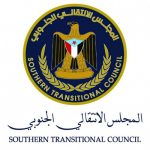Southern Yemenis warn exclusion from U.N. peace talks could trigger new conflict
GENEVA (Reuters) – A separatist leader from south Yemen said a U.N.-mediated peace deal that fails to address the south’s wish for self-determination would be “dangerous” and could trigger a new conflict.
In the war between the Iran-aligned Houthi movement and Yemen’s internationally recognized President Abd-Rabbu Mansour Hadi, southern forces form part of a Saudi-led coalition fighting the Houthis.
As such, the south – where many long wanted to secede from the north – is not included in peace talks mediated by U.N. negotiator Martin Griffiths as a party in its own right.
Ahmed Omar bin Fareed, a senior member of the Southern Transitional Council (STC), the southern separatist movement’s political body, told Reuters the south needed to be included in the peace process to avoid further conflict if a deal does not satisfy their demand for self-determination.
“They will not accept this. And they will fight again,” Bin Fareed said.
“So you have two choices: start another war against them to start another crisis, or to understand the aspirations of the people, and to avoid any political crisis or unrest in the region. They will likely defend their interests if they feel their interests are marginalized in the diplomatic process.”
The STC has met Griffiths three times and he understands their aspirations, Bin Fareed said.
“He promised us that we will be at the table. But when?”
Excluding the STC while talks progress on a new constitution, a national government and preparation for national elections would be “a difficult scenario for us”.
Griffiths’ biggest breakthrough to date is a deal reached in December for a ceasefire and troop withdrawals from the main port city of Hodeidah. But this has suffered numerous setbacks and the warring parties have not yet left the port.
Yemen’s internal splits have festered for years. North and south Yemen united into a single state in 1990, but when separatists tried to secede from the pro-union north in 1994, their forces were swiftly beaten, and more power and resources flowed to the northern capital of Sanaa, angering many.
“Our forces are under the coalition command. We’re not under the leadership of Hadi, but under the leadership of the coalition,” he said.
Bin Fareed, the STC’s chairman in the European Union, said the southern resistance had initially not been organized, but that many civilians took up arms to fight the Houthis, and were later formed with help from the coalition into “security belt” forces and “elite” forces.
The elite forces in the south number at least 30,000-35,000, while other military forces are still engaged in the battle against the Houthis in Hodeidah and in al-Anad, he said.
“The southern forces are maybe 60,000 when you factor in tribal forces and other militias,” Bin Fareed said.
Reporting by Tom Miles; Editing by Raissa Kasolowsky




